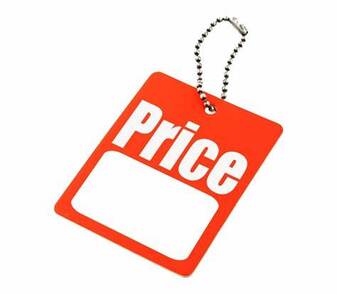 The pros and cons of enrolling books in Kindle Select, the Amazon programme behind KindleUnlimited (KU), are many. It is a constant subject of social media debate amongst Indie authors as to whether it is worth doing or not. But most Indie authors don’t know about the hidden secret behind KU which makes it a much more attractive proposition than you might think. But we’ll circle back to that later in the blog. We know that the amount paid by Amazon for Kindle Enrolled Normalised Pages (KENP) read is quite low. Depending on what price you sell your ebooks for, it could be as low as 10% of the royalties you receive for the sale of an ebook. Conversely it could be as high as 90%. It’s a difficult comparison to make because Indie authors sell their books for a far wider range of prices than trad publishers – anything from 99p to £9.99 or more (99c - $9.99).  Our standard price point means that for a complete read of a book enrolled in Kindle Select we get about 50% of the amount we would if the book was purchased as an ebook. Compared to our paperbacks, KU downloads provide a slightly better return, as we have to keep our paperback prices low so we can be more competitive compared to trad publishers and therefore we receive lower royalties for paperbacks. One of the arguments against enrolment is that, under Amazon’s T&Cs for Kindle Select, you can’t “go wide”.  That is to say, you can’t distribute your books through other on-line retailers, such as Apple, Kobo, Barnes & Noble, Smashwords et al. Here we have a bit of a paradox, because Amazon’s market share for ebooks is around 67% (USA market). So, if you distribute through other channels you only get access to an additional 33% of the total US market. In the UK Amazon’s market share of the ebook market is 79%, which means “going wide” has the potential to reach only an additional 21%. So, what do you gain by “going wide?” Well, obviously you gain access to that wider ebook market. But access is not the same as sales.  To get those sales, you have to market to people who won’t see Amazon ads. Even if you market using universal book links which can direct readers to both Amazon and those wider markets, there is no guarantee that the reader will choose the wider market in preference to Amazon. Given that marketing on platforms other than Amazon is usually more expensive, you could be paying more for sales you would have got with Amazon Ads anyway. And of course we have to take paperback prices into account as well. Amazon’s economies of scale make them the most economic Print on Demand (POD) seller of paperbacks through the internet. None of the other on-line POD providers can get anywhere close to Amazon’s price structures. Whereas the printing costs from most other POD providers means setting a price much closer to that for physical bookshops, which loses you the competitive edge of selling online at a lower price. So, for readers who want to buy paperbacks on-line, Amazon is the first choice seller. At least, it is if they want buy their paperbacks for the lowest prices.  There are other business models of course. If you buy your own ISBN you can use distributors such as Ingram Spark to print and distribute your books, which means it is possible to get books into physical bookshops, which is an ambition for many authors. We have lost the chance to sign up some new authors because our business model doesn’t include distribution through physical book shops. You can even sell your books direct to the public yourself through sites such as Etsy, but they still require marketing if you want to direct readers to your Etsy store.. By going wide you can put your book out for free all the time through platforms such as Smashwords (permafree as it is known) which can sell you the other books in a series. Amazon doesn’t allow you to do that. But a permafree book doesn’t, itself, make you any money. So, there are solid arguments for not enrolling a book in Kindle Select – providing you can convert potential sales into actual sales.  We take a different view. We know that if a book is selling well as an ebook it will also be downloaded through KU. For the current month (July 2024) KU downloads are accounting for 46% of our total income. Based on an average number of KENP per book, the equivalent number of downloads for our books on KU exceeds the number of actual sales we make of those same books. OK, we don’t make so much money from those downloads, but we do make money. And our authors’ names are better known because their books are being read more widely. At the time of writing, we get the equivalent of 1.7 complete KU book downloads for every book we sell in ebook and paperback format combined. To put that in simple numbers, for every 100 ebooks/paperbacks we sell, we get 170 KU complete reads. Now, we have to ask ourselves – and you – how much more marketing would we have to do to sell 170 more books if we wanted to go wide and therefore didn’t enrol those books in Kindle Select? And, of course, marketing costs time and/or money.  Every click we get for an Amazon ad gives readers three buying options: ebook, paperback or KU. If we don’t enrol the books in Kindle Select and go wide instead, readers would only have two buying options: ebook or paperback. Even if our marketing is successful, with the market shares we have quoted above, for every hundred books we sell through Amazon it is unlikely that we would sell enough books through those other retailers, at a high enough price, to make up for the loss of the 170 equivalent book downloads we get through KU. OK, some of those wider channels also offer subscription library services similar to KU, but they are nowhere near as well subscribed as KU and they don’t pay any better.  And now to that secret we mentioned at the top of the blog. If your books are popular as ebooks, Amazon will actually recommend them to their KU subscribers. And the more ebooks you sell or are downloaded on KU, the more Amazon recommends your books, creating a virtuous circle. Basically, you are getting FREE advertising from Amazon – and let’s face it, they don’t give much away for free. KU subscribers get regular email recommendations and, of course, the books appear in the “recommended for you” listings specifically targeted at them. Yes, KU subscribers get their own recommendations listings because not all ebooks are enrolled in Kindle Select, so the standard "recommended for you" listings aren't suitable for KU readers because not all the recommendations will be available to them - and yours will be one of them if it isn't enrolled in Kindle Select. There are reasons why Amazon pushes KU subscribers towards the more popular books, which we won’t go into here. But one thing is for sure – if you aren’t enrolled in Kindle Select, you can’t benefit.  “But”, I hear you say, “To use KU the reader has to have a Kindle.” “To start with,” we reply. “Kindle is the most popular ereader in the world by a wide margin. But Amazon has thought of that, and the Kindle app allows readers to download books on any phone or tablet, turning them into Kindles as well. It’s been available for years!” Now, we aren’t being paid by Amazon to promote Kindle Select. We are just telling you what we have found and what we have calculated to be the better choice of sales channels for us based on real life data. We do “go wide” with some titles, but they are the ones we have found aren’t downloaded very often through KU, so there is no reason to keep those titles exclusive to Amazon. We don’t know why those books don’t appeal to KU subscribers. We do know that some genres do better on KU than others and that may be one of the reasons. Perhaps we need to do some research into that. But, until then, we lose nothing by going wide with those books. But for all the rest, we enrol our books in Kindle Select so that we can maximise the exposure we get for our authors, which also maximises the income that both we and our authors earn. For us, being enrolled in Kindle Select is a “no brainer”. If you have enjoyed this blog, or found it informative, then make sure you don’t miss future editions. Just click on the button below to sign up for our newsletter. We’ll even send you a free ebook for doing so.
0 Comments
Leave a Reply. |
AuthorThis blog is compiled and curated by the Selfishgenie publishing team. Archives
June 2025
|
 RSS Feed
RSS Feed